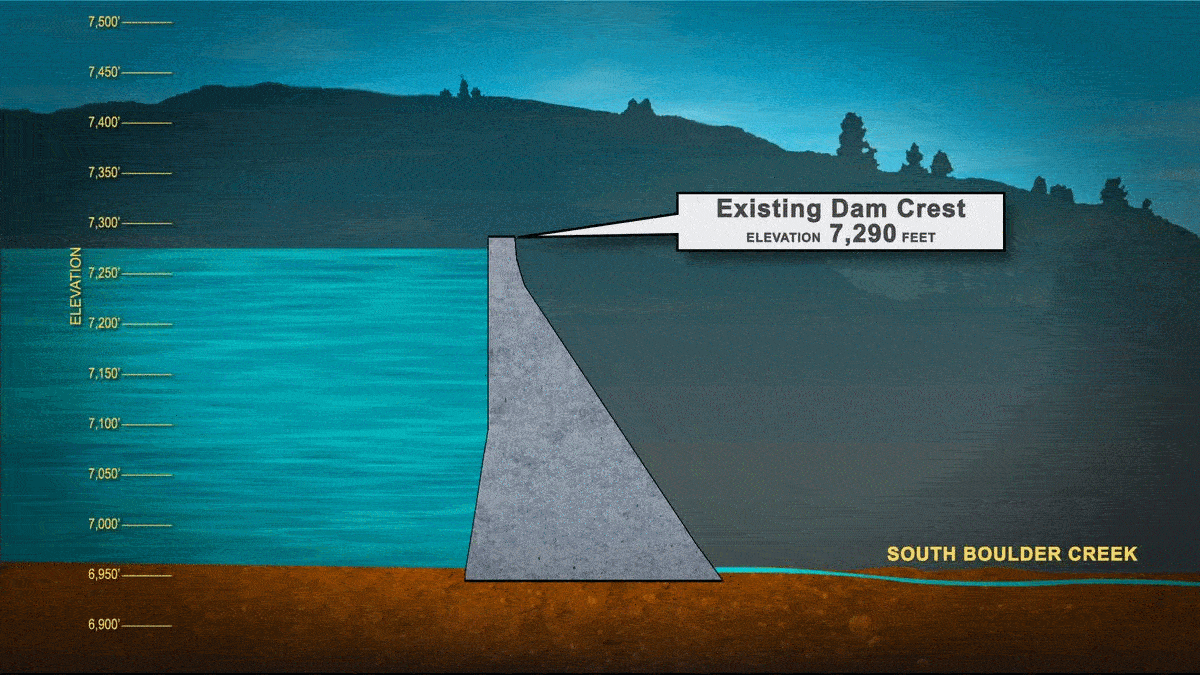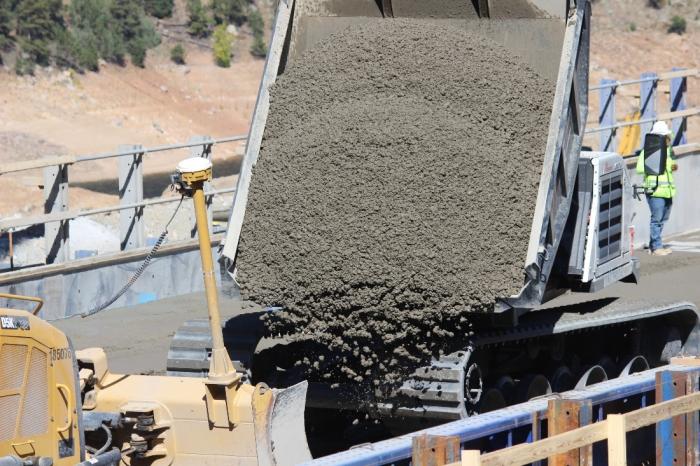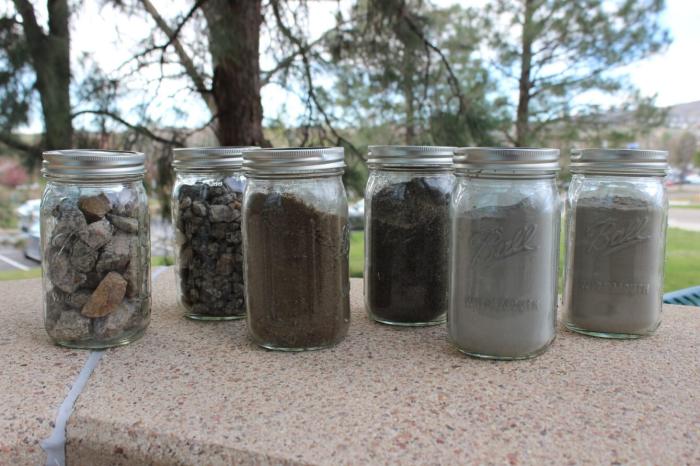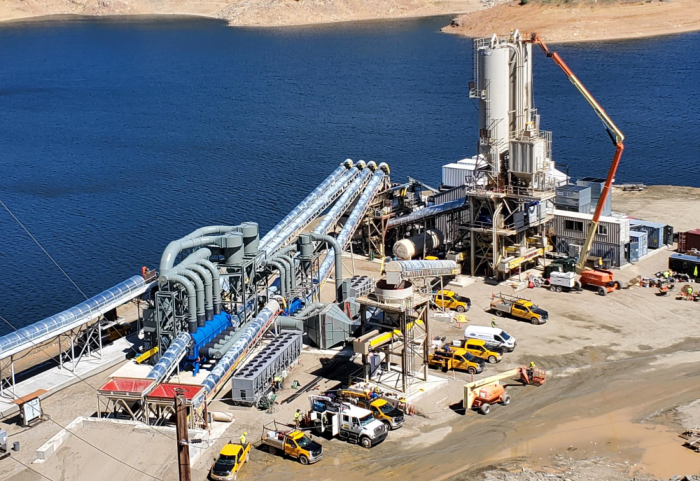Beginning May 2024, Denver Water and its contractor, Kiewit Barnard, will begin placing concrete to raise Gross Dam. We will build 118 concrete steps from the bottom of the existing dam to the new dam crest, 131 feet above the existing dam. Each step will be 4 feet tall with a 2-foot-long setback from the step below.
We will use roller-compacted concrete, or RCC, to raise the dam. RCC gets its name from the way it's applied in the construction process. Workers will place the concrete with mini-dump trucks, spread it with a small bulldozer and then roll and compact it into place with a smooth drum compactor.
Construction of the new steps is expected to last through 2025. In 2026, workers will complete the top of the dam, which will include a control building, electronics, concrete railing and a bridge over the spillway.
Learn More
Making RCC on-site
We have built an on-site quarry, crusher plant and batch plant to make RCC. This will reduce the number of truck trips by about 70%.
What is RCC?
RCC is a mixture of rocks, cement, fly ash and water - the same materials used to make concrete found in sidewalks and buildings. The difference is RCC uses less water, so it looks more like dirt before it is compacted into place.
You can learn more about RCC in our article practice makes perfect when putting concrete in place.
The quarry
Rock will be excavated from the on-site quarry and brought to the crusher plant where it will be turned into aggregate and sand for the RCC.
The crusher plant
The crusher plant will break up rock from the quarry into aggregate and sand that will be mixed with the RCC. The crusher equipment turns boulders into rock no bigger than 2 inches.
The batch plant
The batch plant mixes the materials together to make concrete. It will take nearly 740,000 cubic yards of RCC to raise the dam. The entire batch plant is almost the length of two football fields.
What to expect during construction
So far, the work on-site has been in preparation for the dam raise. Here's what to expect during RCC placements:
Trucks
Up to 30 additional trucks will deliver cement and fly ash daily in 2024. We have hired dedicated drivers for these deliveries who will go through training to drive safe through the canyon. Trucks will haul throughout the day and night; however, we will not haul cement or fly ash during school bus hours, 7-8:30 a.m. and 3-4:30 p.m.
Noise
Raising the dam requires an on-site quarry, crusher plant, batch plant and conveyor system, as well as more deliveries, equipment and support staff. While we expect an increase in noise on-site, we will continue to assess noise levels to make sure they stay below allowable limits.
Lights
RCC placements are a 24/7 operation. Lights are needed to illuminate the roads, produce and crush aggregate, batch and convey concrete, and maintain and support operations. We will continue to downcast lights as much as possible while maintaining the safety of our workers.
Workers
We will have up to 375 workers on-site daily in 2024. This number will increase to approximately 450 workers in 2025. To meet our goal of 50% carpooling, we will continue our shuttle program. The shuttle program brings workers to site in 15-passenger vans from the Northwater Treatment Plant
This is the largest dam raise in the U.S. and the largest RCC dam raise worldwide. When complete, Gross Dam will be the tallest RCC dam in the country and the tallest dam in Colorado.



